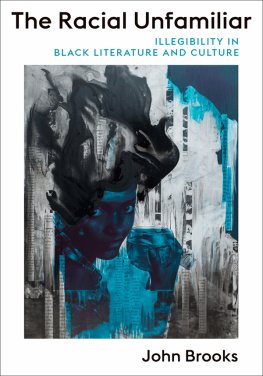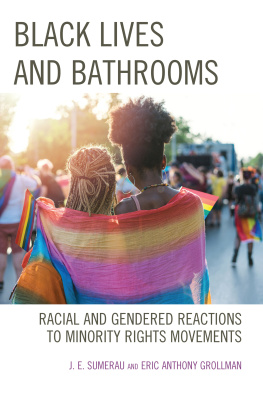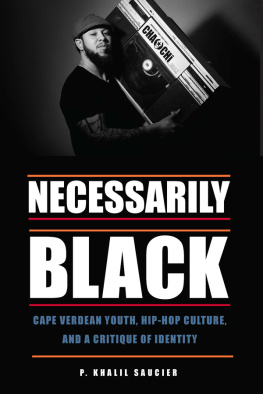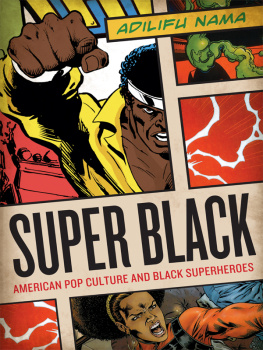
Racialised Barriers
Racialised Barriers is an explicit and systematic comparison of key distinct differences and striking similarities between the experience of Black people in the USA and England in the 1980s. It highlights the continuing significance of the racialised barriers, boundaries and identities in patterns of racialised inequality that prevail in each nation. Stephen Small argues that racialised hostility is woven into the social fabric of the US and England in ways that ensure its continuation well into the next century. However, he rejects the idea that the best way to combat hostility is for Black people as a whole to join in a class allegiance with white leaders, or to uncritically accept the agendas of so called Black leaders. Instead he argues for an approach that builds on shared racialised identities, and Black organisations.
This book will be of immense interest to academic analysts of race and racism in industrialised societies, and in particular will be of interest to students of sociology, international relations and ethnicity studies.
Stephen Small lectures in Sociology at the University of Leicester.
Critical Studies in Racism and Migration
Edited by Robert Miles
University of Glasgow
Racialised Barriers
The Black Experience in the United States and England in the 1980s
Stephen Small
First published 1994
by Routledge
2 Park Square, Milton Park, Abingdon, Oxon OX14 4RN
Simultaneously published in the USA and Canada
by Routledge
711 Third Avenue, New York, NY 10017
Routledge is an imprint of the Taylor & Francis Group, an informa business
1994 Stephen Small
Typeset in Baskerville by
PontingGreen Publishing Services, Chesham, Bucks
All rights reserved. No part of this book may be reprinted or reproduced or utilized in any form or by any electronic, mechanical, or other means, now known or hereafter invented, including photocopying and recording, or in any information storage or retrieval system, without permission in writing from the publishers.
British Library Cataloguing in Publication Data
A catalogue record for this book is available from the
British Library.
ISBN 0415077257 (hbk)
ISBN 0415077265 (pbk)
Library of Congress Cataloging in Publication Data.
Small. Stephen
Racialised barriers: the Black experience in the United States and England in the 1980s / Stephen Small.
p. cm. (Critical studies in racism and migration)
Includes bibliographical references and index.
ISBN 0415077257: $50.00 ISBN 0415077265
(pbk.): $15.95
1. United StatesRace relations. 2. EnglandRace relations. 3. Afro-AmericansCivil rights. 4. BlacksCivil rightsEngland. 5. Afro-AmericansSocial conditions1975 6. BlacksEnglandSocial conditions. 7. Afro-AmericanEconomic conditions. 8. BlacksEnglandEconomic conditions. I. Title. II. Series.
E185.615.S574 1994
Contents
Over the last fifteen years I have studied, researched and lectured in various educational and research institutions across the United States and England. I have also been an active participant in a range of Black organisations, as well as organisations whose membership was open to non-Blacks. Initially I made occasional comparisons of the experiences of Black people in each country; as time passed the comparisons became much more explicit and systematic as I strove to unravel what appeared to be both distinct differences and striking similarities. This book is born of these experiences. In writing it I set myself a limited number of goals and I expect that some people will be disappointed; such is the nature of the written enterprise. Nevertheless, I hope that this contribution to the continuing analysis of racialised relations in the modern world will stimulate discussion and debate.
A primary goal of the book is to further the systematic comparison of the experiences of Black people in the United States and England. I have focused on several key aspects of this experience during the 1980s and hope that it will challenge some of the myths and superficial impressions that many people, Black and non-Black, policymaker and practitioner, academic and activist, hold about the other nation. A second goal is to highlight the continuing, if increasingly complex, significance of racialised barriers, boundaries and identities in the patterns of racialised inequality that prevail in each country. I have not tried to resolve the perennial (if sometimes futile) debate on the relative importance of race and class, in the experiences of Black people, though I hope what I have written demonstrates that it would be foolish to attempt to do so without reference to the complex inter-relationships between the two. If I have spent more time focusing on racialised rather than class factors that is because I believe that such factors have become more and more marginalised as patterns of racialised hostility in the 1980s became more covert.
As with all projects, this book has benefited from the support of colleagues and friends. Thanks to the members of the Institute for the Study of Social Change (ISSC) at the University of California, Berkeley: particularly Troy Duster, David Minkus, and graduate students associated with ISSC. They listened to versions of chapters from the book and offered insightful comments and supportive criticisms. I also benefited from comments made by participants during a presentation of an early draft of at the Conference on Afro-Caribbeans in Britain in 1992, organised by Abebe Zegeye of the Centre for Modern African Studies, University of Warwick.
Thanks to Kamaldeep Deol who worked for one year as my research assistant and particularly contributed to . Special thanks to the series editor, Robert Miles, who has offered strong support and encouragement at all times. His suggestions made the book a better project. Thanks also to the anonymous reviewers of both the original draft proposal for the book, and the final draft of the manuscript. If I could identify them I would thank them personally.

When most Americans think of England numerous clear, if divergent, images often come to mind. Some think of a society steeped in centuries of tradition, with castles and cathedrals, architecture and other artefacts of so-called high culture. Some think of democracy and the Houses of Parliament, the grace and splendour of the Royal Family, or the archaic and bizarre rituals of the aristocracy. For others a different set of images comes to mind the rock music of Pink Floyd, the inane humour of Benny Hill, or the profound and irreverent comedy of Monty Python and Black Adder. But Americans in general know a lot less about the Black experience and they have few images of Black people. Like Ralph Ellisons Invisible Man, Blacks in England seldom catch attention, except in the most obvious and stereotypical scenes. In sport they may know of multiple world-title-holder decathlete Daley Thompson, of the world-title-holder for the 100 metres sprint, Linford Christie, or the British heavyweight boxer, Frank Bruno; in music, the soul and funk of Imagination, the soft sounds of sultry Sade, the mid-tempo beat of Loose Ends, and the unsurpassed jazz of Courtney Pine; in reggae, the phenomenal success of Steel Pulse, of Aswad and of UB40. Americans are used to thinking of the United States as a society plagued by racialised antagonism as African-Americans and others live a precarious existence in their quest for the American Dream. They have seldom had reason to visualise England in that way, except for a short time during 1981, and again in 1985, when widespread rioting (so-called race riots) rocked these popular perceptions. But this soon passed. The image of England still prevails in the minds of many Americans as one of civil calm.








